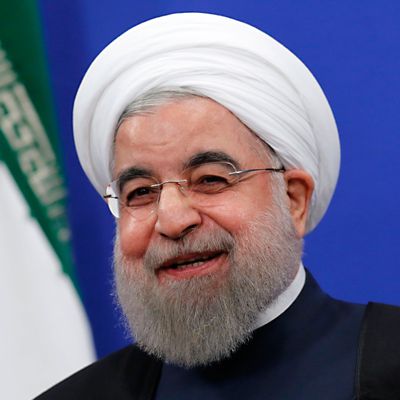
Opponents of the Iran deal have a problem: Many claimed to oppose the agreement because it wouldn’t deter Tehran’s nuclear ambitions — but they actually opposed it for entirely different reasons.
Israeli prime minister Benjamin Netanyahu argued that a nuclear Iran would represent an “existential threat” to Israel. Neoconservatives in the United States and our allies in Saudi Arabia made similar claims. The Obama administration accepted their shared premise — and built a nuclear agreement around it.
If one stipulates that a nuclear Iran would try to annihilate Israel, then all of America’s other complaints with Tehran become comparatively insignificant. Who cares about funding of Hezbollah, intercontinental ballistic missiles, or attacks on U.S. troops in Iraq when there’s an imminent threat of atomic bombs raining down on Tel Aviv? Surely, if one could find a diplomatic means of forestalling the latter possibility, it would be worth pushing all the former issues to the back burner.
So, the Obama administration did just that. The Iran nuclear agreement did nothing to limit the regime’s missile program, or its financing of extremist groups. But it did set up a world-class inspections regime to guarantee that Tehran’s nuclear program remains frozen in place.
This appears to have nullified the Iranian nuclear threat, at least for the moment. But it didn’t do anything to prevent Tehran from gaining regional influence, funding Hezbollah, or developing stronger economic ties with Europe. In fact, it helped Iran do that last one.
And since many of the agreement’s foes never really feared that Tehran would pull the nuclear equivalent of a murder-suicide — but were genuinely afraid of Iran gaining geopolitical influence (or, in Donald Trump’s case, genuinely committed to negotiating better “deals” than Barack Obama had) — the agreement’s success has only exacerbated their worries.
Thus, the Trump administration has decided to pretend that those worries are germane to the agreement. Last week, U.N. ambassador Nikki Haley said that judging the Iranian regime’s true nuclear intentions “strictly in terms of compliance with the JCPOA [the nuclear agreement] is dangerous and short-sighted.” Haley went on to suggest that Iran’s “proven arms smuggling,” “violations of travel bans,” and “ongoing support for terrorism” might constitute grounds for ruling the regime noncompliant with JCPOA (even though the terms of the agreement do not prohibit any of those things).
On Monday, the administration received another unwelcome confirmation that Obama’s agreement is still preventing a regime hostile to the U.S. from securing a nuclear weapon. As Bloomberg reports:
Iran has received nearly two snap nuclear inspections a month and almost double the overall number of visits it had just five years ago, indicating the value of the deal the U.S. and its allies reached in 2015 to rein in the country’s nuclear program.
International Atomic Energy Agency monitors conducted 402 site visits and 25 snap inspections in the first 12 months since the deal was enacted in early 2016, according to data from reports to IAEA members. The figures may help dispel doubts over the adequacy of the Joint Comprehensive Plan of Action agreement involving the U.S., China, France, Germany, Russia and the U.K.
Trump is widely expected to rule Iran noncompliant with JCPOA when it comes up for recertification on October 15.
In other news, the White House is doing everything in its power to persuade a rogue regime to trade its nuclear-weapons program for economic rewards, and a free pass on other less important diplomatic issues.






























